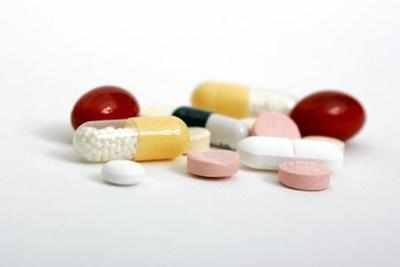- News
- India News
- No fresh approval for cocktail drugs
Trending
This story is from December 22, 2016
No fresh approval for cocktail drugs
The government has reiterated that no fresh approval should be granted by state licensing authorities to companies for manufacturing “cocktail” therapies, thus tightening the noose around “irrational and unsafe” fixed-dose combination (FDC) drugs.

Representative image
MUMBAI: The government has reiterated that no fresh approval should be granted by state licensing authorities to companies for manufacturing “cocktail” therapies, thus tightening the noose around “irrational and unsafe” fixed-dose combination (FDC) drugs.
Recently, two licences for FDC drugs, issued by Uttarakhand and Daman, were cancelled, official sources said.
This comes even as the government prepares for its legal fight against the pharmaceutical industry by filing an appeal in the Supreme Court against the Delhi high court’s December 1 order that overturned the health ministry’s ban on 344 FDCs.While the controversy has been raging for the past few months, there have been close to a dozen FDC launches, mostly by small pharma companies, in the diabetic, dermatology, respiratory and anti-infective categories (see graphic).
An FDC drug is a cocktail of two or more active drug ingredients in a fixed ratio of doses. Under the law, a combination drug is a ‘new’ drug, and should undergo stringent clinical studies to prove it is safe and efficacious.
In March, the government had banned common combination medicines, including Crocin Cold & Flu, D-Cold Total, Sumo, Oflox, Chericof, Kofnil, Dolo Cold, Decoff, O2, dermatology drug Panderm Plus, gastro-intestinal drug
Since the ban would have caused a huge loss to the industry, eroding value of thousands of crores, pharma companies went to court and finally managed to get it quashed in the Delhi high court.
FDCs have faced flak over the years, with the drug regulator directing states to stop giving licences and ban some of them. The popularity of FDCs has been driven by advantages of better compliance, reduced cost and the perception of improved efficacy (without adequate scientific data), industry experts say. C M Gulhati, editor of medical journal ‘Monthly Index of Medical Specialities’, who has been championing the use of safe and rational medicines over the decades, had earlier told TOI: “Not a single drug combination (from the banned list) is marketed in any of the developed markets like the US, the UK, Australia, Canada and Ireland.
“Unfortunately, the entry of fiercely competitive drug manufacturers and greed for profits, aided... by a lax regulatory system, continued to overpower medical science, with the result that over 900 irrational FDCs have been introduced here.” Developed countries, on the other hand, have approved just over 200 rational FDCs after intense scrutiny.
Recently, two licences for FDC drugs, issued by Uttarakhand and Daman, were cancelled, official sources said.
This comes even as the government prepares for its legal fight against the pharmaceutical industry by filing an appeal in the Supreme Court against the Delhi high court’s December 1 order that overturned the health ministry’s ban on 344 FDCs.While the controversy has been raging for the past few months, there have been close to a dozen FDC launches, mostly by small pharma companies, in the diabetic, dermatology, respiratory and anti-infective categories (see graphic).
An FDC drug is a cocktail of two or more active drug ingredients in a fixed ratio of doses. Under the law, a combination drug is a ‘new’ drug, and should undergo stringent clinical studies to prove it is safe and efficacious.
In one of the strictest directives yet, the health ministry and the Drugs Controller General have communicated that product approvals given to fixed-dose combinations by state licensing authorities will be deemed illegal and render them liable to criminal prosecution, sources added.
In March, the government had banned common combination medicines, including Crocin Cold & Flu, D-Cold Total, Sumo, Oflox, Chericof, Kofnil, Dolo Cold, Decoff, O2, dermatology drug Panderm Plus, gastro-intestinal drug
Zenflox and cough syrups Phensedyl and Corex. The notification included medicines “likely to involve risk to human beings”, where safer alternatives to the drug are available, and which were found to have “no therapeutic justification”.
Since the ban would have caused a huge loss to the industry, eroding value of thousands of crores, pharma companies went to court and finally managed to get it quashed in the Delhi high court.
FDCs have faced flak over the years, with the drug regulator directing states to stop giving licences and ban some of them. The popularity of FDCs has been driven by advantages of better compliance, reduced cost and the perception of improved efficacy (without adequate scientific data), industry experts say. C M Gulhati, editor of medical journal ‘Monthly Index of Medical Specialities’, who has been championing the use of safe and rational medicines over the decades, had earlier told TOI: “Not a single drug combination (from the banned list) is marketed in any of the developed markets like the US, the UK, Australia, Canada and Ireland.
“Unfortunately, the entry of fiercely competitive drug manufacturers and greed for profits, aided... by a lax regulatory system, continued to overpower medical science, with the result that over 900 irrational FDCs have been introduced here.” Developed countries, on the other hand, have approved just over 200 rational FDCs after intense scrutiny.
End of Article
FOLLOW US ON SOCIAL MEDIA











